
Articles by Fiji
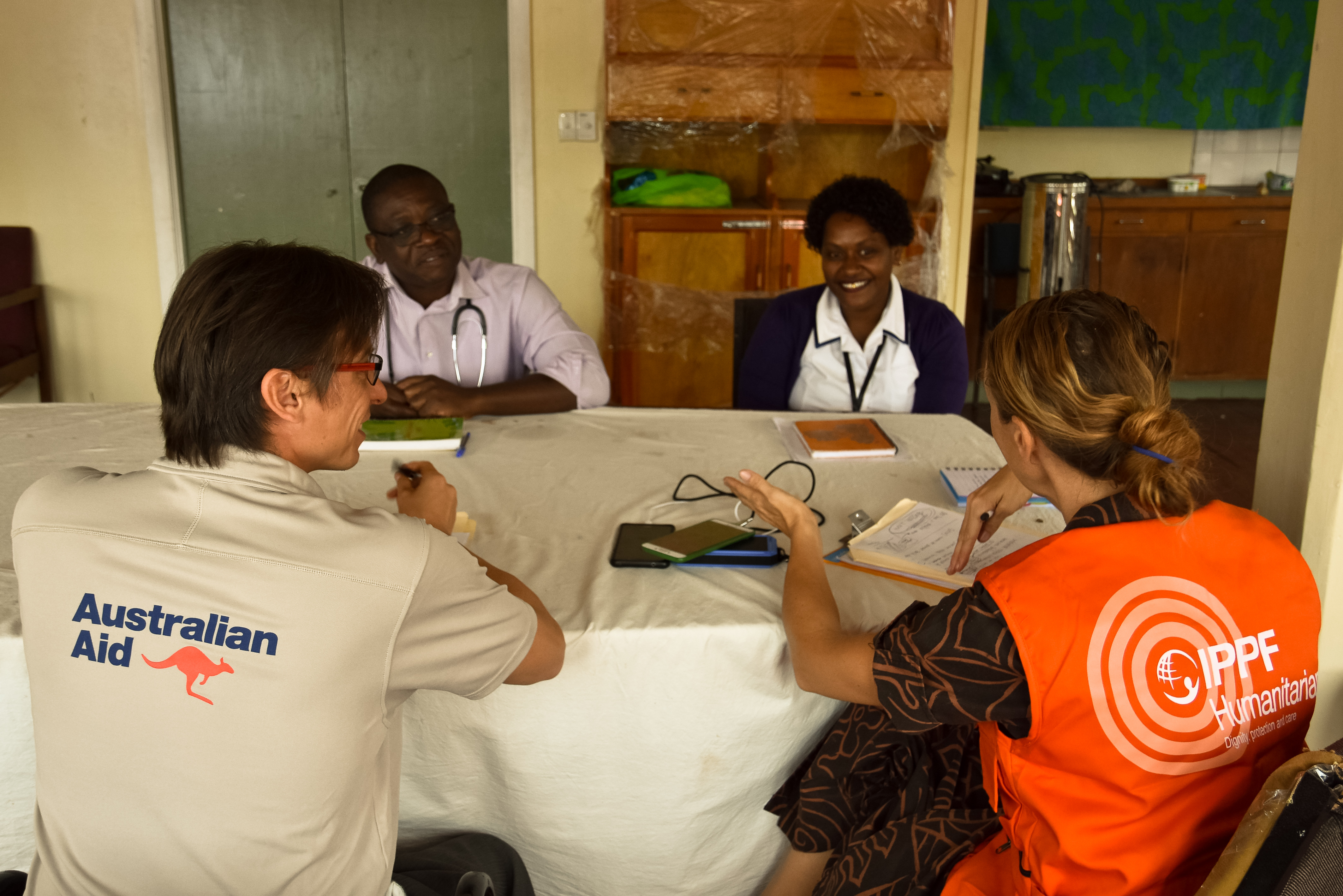
SPRINT: Sexual and reproductive health in crisis and post-crisis situations
The SPRINT Initiative provides one of the most important aspects of humanitarian assistance that is often forgotten when disaster and conflicts strike: access to essential life-saving sexual and reproductive health services. We build capacity of humanitarian workers to deliver essential life-saving sexual and reproductive health services in crisis and post-crisis situations through the delivery of the Minimum Initial Service Package (MISP) for reproductive health in emergencies. Through funding from the Australian Government's Department of Foreign Affairs and Trade (DFAT), our SPRINT Initiative has brought sexual and reproductive health to the humanitarian agenda, increased capacity and responded to a number of humanitarian emergencies. Australia has funded the SPRINT initiative since 2007. Since then, the SPRINT initiative has responded to 105 humanitarian crises and worked with partners in 99 countries. SPRINT has reached over 1,138,175 people, delivering 2,133,141 crucial SRH services, and continues to respond to ongoing emergencies. In each priority country, we work with an IPPF Member Association to coordinate and implement life-saving sexual and reproductive activities. Through these partnerships, SPRINT helps strengthen the enabling environment, improve national capacity and provide lifesaving services during times of crisis. You can read more about IPPF Humanitarian’s Programme here. Australia's location in the Indo-Pacific provides DFAT with a unique perspective on humanitarian action. Australia is committed to helping partner governments manage crisis response themselves. This is done through building the capacity of the national government and civil society to be able to respond to disaster. DFAT also works with experienced international partners to prepare for and respond to disasters, including other donors, United Nations agencies, the International Red Cross and Red Crescent Movement and non-government organisations.

The response to Tropical Cyclone Yasa: Through the eyes of a humanitarian surge member
Sera Vulavou is the Senior Monitoring and Evaluation Officer with IPPF’s Sub-Regional Office for the Pacific. She was trained as a humanitarian surge roster member in early 2020, to be able to deploy to emergencies to provide technical assistance to Member Associations – here she shares her experience with us. Severe Tropical Cyclone (TC) Yasa was the strongest in the South Pacific since TC Winston in 2016, as well as the fourth most intense TC on record in the basin. The Reproductive and Family Health Association of Fiji (RFHAF) humanitarian response to TC Yasa has reached some of the most difficult and geographically scattered islands and communities, which included the islands of Moala, Totoya, and Matuku. Being part of the IPPF humanitarian surge roster team gave me the opportunity to accompany the RFHAF response team during their humanitarian work. This experience was about putting in action what I could only personally describe as being at the right place at the right time.
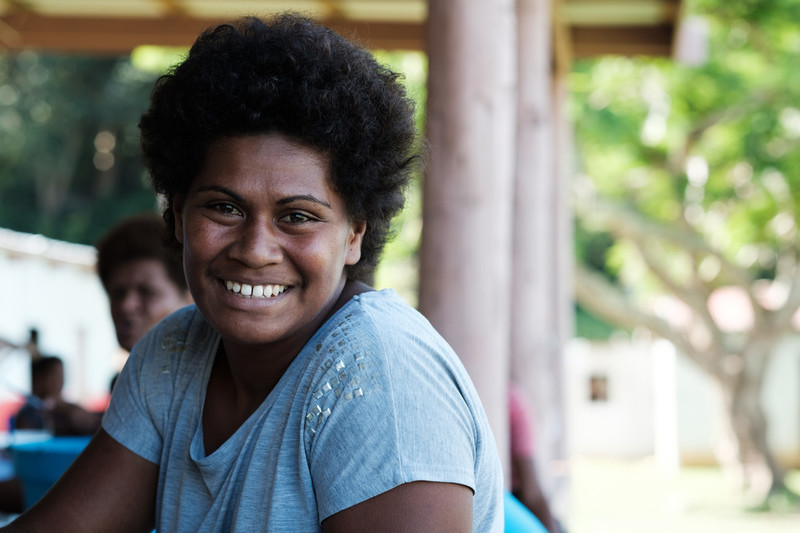
In pictures: Delivering healthcare to remote communities in Fiji
In early April 2020, the all too familiar destruction of a Tropical Cyclone (TC) – Harold – hit the Solomon Islands, Vanuatu, Fiji and Tonga. One of the worst affected areas was the Eastern part of Fiji. Through support by Department of Foreign Affairs and Trade (DFAT), our Member Association, Reproductive and Family Health Association of Fiji (RFHAF), was quick to respond ensuring access to essential sexual and reproductive healthcare for Kadavu’s women, girls, and vulnerable groups. Fiji's vulnerable coastline Fiji’s worst affected area was the Eastern part, with TC Harold bringing destructive storm force winds and storm surge. RFHAF focused its humanitarian response on the local Kadavu population. This remote area proves a challenge to reach for the team with supplies. Share on Twitter Share on Facebook Share via WhatsApp Share via Email RFHAF's humanitarian response team tackle rough terrain National travel restrictions - due to the current COVID-19 pandemic - on all inter island transfers has slowed the response in some areas, including Kadavu. The island of Kadavu is one of the least developed areas of Fiji, the main source of income is substance living (Yaqona). Transport around the island is difficult, with very few roads, no public water system or electricity. The humanitarian team from RFHAF travels by boat and then on foot. Share on Twitter Share on Facebook Share via WhatsApp Share via Email Asenaca, client Kadavu, the biggest island in the Eastern division has the greatest population (10,897). 197 evacuation centres were activated in total, initially hosting over 6,240 people. Many are women of reproductive age, with an estimated 150 currently pregnant. Asenaca learns about breast cancer self-checks from RFHAF’s healthcare provider, Karo. Share on Twitter Share on Facebook Share via WhatsApp Share via Email Nasi, RFHAF healthcare provider The medical mobile team deliver a broad range of healthcare including contraception, information and counselling on sexual health, pregnancy, HIV and STI care and testing. RFHAF Team in Kadavu performing general health checks after TC Harold. Nasi administers a HPV shot to a client. Share on Twitter Share on Facebook Share via WhatsApp Share via Email Kate, client Young women and girls are at the heart of RFHAF’s healthcare provision. Kate walks home with her dignity kit after a health check at the mobile clinic. Share on Twitter Share on Facebook Share via WhatsApp Share via Email Karo, RFHAF healthcare worker RFHAF offers sexual and reproductive healthcare as well as counselling, and referrals for follow up care. Share on Twitter Share on Facebook Share via WhatsApp Share via Email Alidi, RFHAF healthcare worker The team ensures young people in the community are not forgotten and provide information and education on relationships and sexual health and rights. Alidi conducting a session with a local group of young people at Gasele, Kadavu.Photos ©IPPF/Rob Rickman/Fiji Share on Twitter Share on Facebook Share via WhatsApp Share via Email
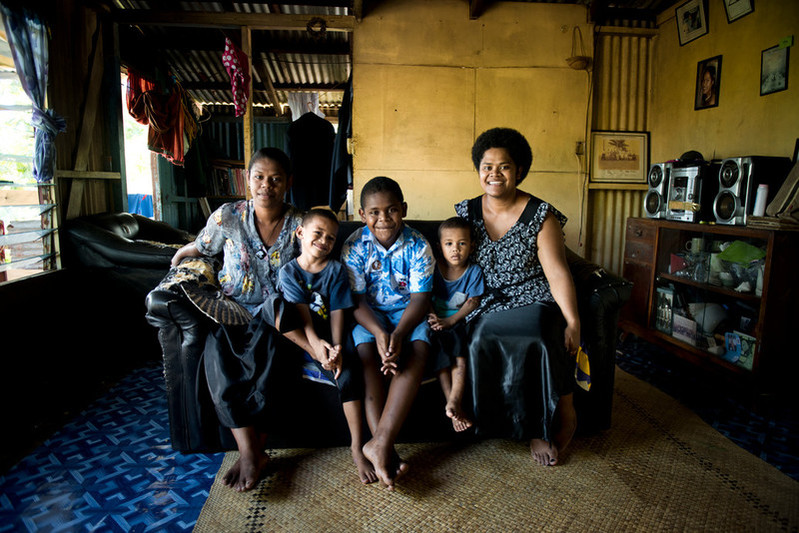
Helping Fijian communities to rebuild after Cyclone Winston
Cyclone Winston that devastated Fiji was the strongest to ever hit the South Pacific. IPPF’s humanitarian response there is part of our SPRINT Initiative, funded by the Australian Government’s Department of Foreign Affairs and Trade. In 2016, the highest grade cyclone to ever hit the South Pacific devastated Fiji, affecting 40% of the population. IPPF was among the first on the ground providing critical life-saving services: sexual and reproductive health provisions, which are often neglected when disaster strikes. In the wake of a crisis, sexual violence often escalates, leaving women and young people vulnerable to STIs and unwanted pregnancy. It is estimated that approximately 20% of women are pregnant at any given time during an humanitarian crisis, and with the help of our local Member Associations on the ground, we prioritize services to women and young girls, especially those who are pregnant and lactating, as well as new mothers. Xerxes Arcenal was part of the team which traveled to Viti Levu, the remote Fijian villages affected by the cyclone, to deliver much-needed medical attention and supplies. During their travels, he saw all the health facilities down and the schools down. "The young people will have nothing to do. This is a special concern for NGOs, as it is a critical time in the lives of adolescents, and it is not ideal for them to be left idle for a long time." Our local IPPF Member Association, the Reproductive and Family Health Association of Fiji, was instrumental in connecting with the local communities. This was important because cultural restrictions make it hard to discuss issues of sex within Fijian communities, which is a barrier to delivering sexual health issues. Xexes also stresses that sexual and reproductive health should not be considered an optional extra when it comes to any NGO mounting a response to a humanitarian disaster. Girls continue to menstruate, women continue to give birth, couples continue to have sex in the confused and chaotic weeks and months after a natural disaster. There will be cases of sexual violence, particularly when situations are stressful or people are forced to live in makeshift shared shelters. Unprotected sex will result in unplanned pregnancies, and children born in chaotic circumstances may fall behind on their development markers. “If you talk to the government they will say, we don’t need to respond to reproductive health right now, it’s not life threatening. So you initially get resistance from partners, from government, and you have to work around that, constantly engage them in discussion, show them proof of what happens.” At the same time, he identified the main challenge as squaring the gap between expectation and reality: the expectations of funders that a successful humanitarian aid mission should be based on numbers to whom services were delivered to, rather than the reality on the ground, where there might not be mass numbers who need attention, but rather, difficult circumstances that need to be overcome in order to deliver aid. “As it is in every disaster, it will relate to funds. No matter the road conditions, if you have enough resources you will be able to overcome it. The geo-economic situation of Fiji and other countries in the Pacific makes prices, cost of services and commodities very high. Add disaster to that, it will be ten times normal,” say Xerxes. “As it was, we would need our own vehicles [to effeciently deliver aid]. In Rakiraki we would love to serve one of the villages but you need a chopper to be able to reach the area. So these things are very challenging.” For Tarai Nakolinivalu, IPPF's Humanitarian response leader and former midwife, the Cyclone Winston response provided invaluable learning on how best to deal with the aftermath of natural disasters in Fiji. Tarai was part of the IPPF team that was involved in distributing aid to affected communities “Some of the roads were washed away, even bridges, so it was hard to drive,” says Tarai. The team travelled to villages to find sometimes great damage: trees uprooted, houses destroyed, sometimes more than 100 people living together in the community hall. One of the biggest challenges is that Given the strained circumstances, the team sometimes had to forego some Fijian customs, like the traditional kava ceremony which is undertaken by the village to show outsiders they are welcome. “The learning is to always be prepared because we never know. Because of climate change, natural disasters are here to stay now. We can’t be complacent here in Fiji.” Stories Read more stories about our work in Fiji after the Cyclone Winston
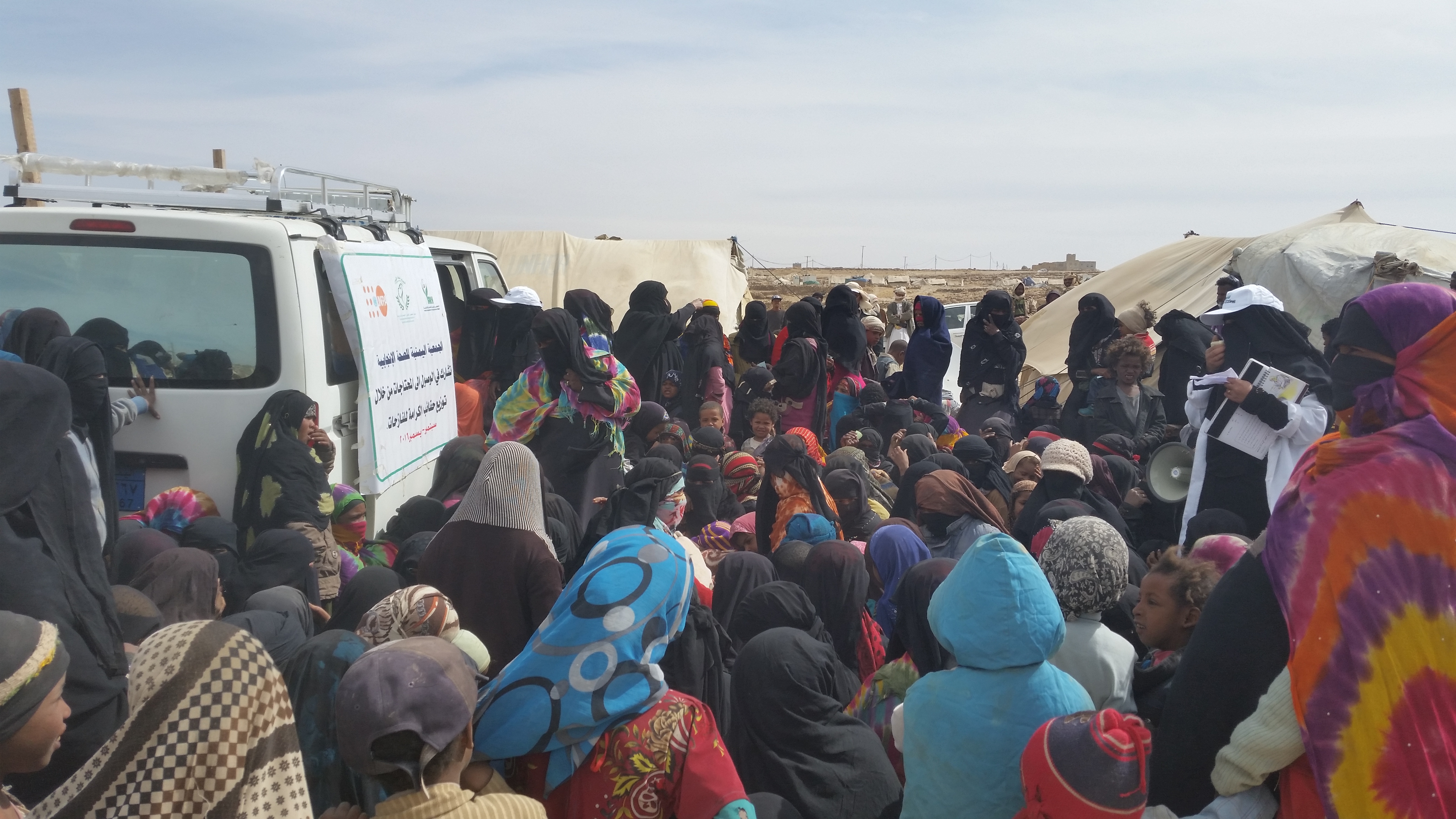
Humanitarian crises are not temporary, nor are sexual and reproductive health needs
Women and girls are disproportionately affected in humanitarian crises and face multiple sexual and reproductive health challenges in these contexts. IPPF has been providing much needed support to vulnerable communities through our global federation of member associations, who provide contextualised, timely and tailored interventions drawing on local partners' knowledge and expertise. However, recent shifts in the global political landscape are concerning and threaten to undermine IPPF's mission and impact on the ground. We live in a time when crises, whether brought on by human causes or natural disaster, have displaced more people than at any point since the Second World War. The needs of those driven from their homes are not transitory. Refugees now find themselves facing impermanent conditions for an average of 20 years. They must resort to living in temporary shelters or makeshift accommodation, and their refugee status often leaves them ineligible to access public healthcare and education. The UN reports there are more than 125 million people worldwide in need of humanitarian assistance. Of those, a quarter are women and girls between the ages of 15 and 49. And one in five of these women and girls is likely to be pregnant. A woman who has been forced to flee is particularly vulnerable. More than 60% of maternal deaths take place in humanitarian and fragile contexts, according to the UN Population Fund (UNFPA). At least half of these women’s lives could easily be saved. And yet women and girls affected by humanitarian crises face other risks too. A breakdown in civil order following disasters consistently increases the occurrence of sexual violence, exposure to sexually transmitted infections including HIV, and unintended pregnancies. After the 2015 cyclone in the Pacific Island nation of Vanuatu, a counselling centre recorded a 300% spike in gender-based violence referrals. Likewise, a study with Syrian refugee women displaced by conflict found that more than 50% experienced reproductive tract infections, almost a third had experienced gender-based violence, and the majority had not sought medical care. IPPF is at the forefront of delivering life-saving services. Our sexual and reproductive health program in crisis and post-crisis situations (SPRINT), established in 2007 and supported by the Australian Government, has ensured access to essential sexual and reproductive health services for women, men and children in times of crisis. Under the banner of our new IPPF Humanitarian division, the SPRINT initiative is now part of a global movement that seeks to provide all those affected by crises worldwide with dignity, protection and care. As a federation of 142 locally-owned but globally connected member associations, IPPF has a unique model for providing these vital humanitarian services. Our focus on valuing local solutions means our responses are rapid and sustainable. We see it as vital to be on the ground before, during, and after crises. Member associations work to mitigate against sexual and reproductive health (SRH) issues ahead of a crisis to reduce negative impacts, and remain afterward to assist communities to recover and rebuild their lives. When Cyclone Winston struck Fiji in February last year, IPPF’s local member association, the Reproductive and Family Health Association of Fiji (RFHAF), was already preparing to mobilise teams of volunteers and health staff. Initially, sexual and reproductive health was not prioritised at a national level, thus the first challenge was to convince the Government of Fiji and lead agencies of the critical importance of including sexual and reproductive health issues in the response. With support from IPPF and SPRINT personnel, RFHAF successfully advocated with the government to include reproductive health concerns into the post-cyclone needs assessment, and supported the Government in carrying this assessment out. Coordination and collaboration was critical as the damage was across an extensive area on several islands. Working in partnership with the Ministry of Health (MoH), UNFPA, Red Cross Society and local non-government agencies, RFHAF provided SRH care to remote areas identified as being worst hit by the cyclone. Colleagues from SPRINT and RFHAF split into three teams, moving into the field simultaneously to conduct 37 mobile medical missions to reach women and girls, with vulnerable pregnant women and new mothers prioritised. Comprehensive follow up beyond the initial response post-cyclone was a particular challenge for an organisation of just 11 staff. To address this, RFHAF leveraged their existing partnership with the MoH to facilitate training and handover of SRH service provision to district nurses and sub-divisional health centres, once these facilities were again operational. The response in Fiji utilised the Minimum Initial Service Package for Reproductive Health, which IPPF helped to pioneer. Commonly referred to as ‘the MISP’, the package is a series of priority life-saving interventions that IPPF seek to implement as soon as possible following a crisis.
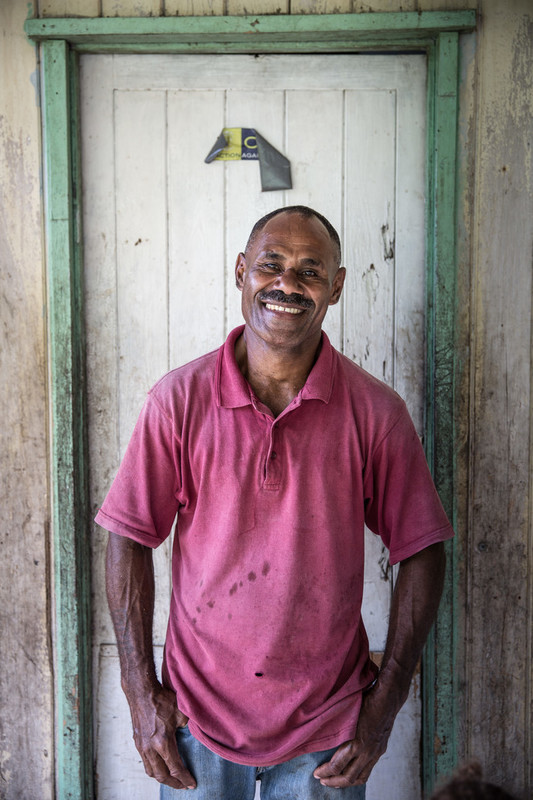
Leaders tackling taboos in Fiji
Cyclone Winston, which devastated Fiji, was the strongest to ever hit the South Pacific. IPPF’s humanitarian response there was carried out with our Member Association, the Reproductive & Family Health Association of Fiji, and is part of our SPRINT Initiative, funded by the Australian Government. Despite its flourishing international tourism industry, Fiji remains a deeply conservative and traditional society, bound by long-held rules on culture and conduct. In particular, any discussion about sex and sexuality is taboo: including talk of sex, condoms, pregnancy and sexually transmitted infections. Given Fiji’s relatively high rate of teen pregnancy (36 in 1000 in the 15-19 age group, according to UNFPA 2016 statistics), it is an issue of growing concern. It falls upon the village headman to provide guidance on how the issue is tackled: and when there is one who is progressive and not afraid to discuss taboo topics, it augers well for the sexual health of the entire community. Sevuama Sevutia is one such leader. The deputy headman of Naiserelegai village is a proud advocate of condom-use, telling the young people of the village that it is vital to wear them to prevent pregnancy. “My experiences, I share with the kids,” says Sevuama. “I tell the children, get to that stage of knowing what the sexual relationship is all about. Please look after yourself and if you have a problem, with the young boys or if someone is giving you the wrong advice, please tell people. It’s my job to tell them, to call their mother, their father.” “Nowadays, as the education level rises, we have to open up. But in the village, in the olden days, when people would see condoms they would say, 'no no, don’t talk about that'. But I am encouraging them to open up.” His children, too, are encouraged to be open. “I tell them, this is a condom,” he says, brandishing an imaginary condom. “Safe sex. If you want to have sex, use a condom. Use the condom! And protect yourself from the other things.” Sevuama, 53, a former marine engineer, spent decades in Suva before returning to his bayside home village of Naiserelegai. He was in the city at the time of the cyclone but managed to get back three or four days later when the roads had re-opened. He found his home damaged but intact and his five children safe, but much of the village destroyed and his wife still in shock. He received a small amount of money from the government to help fix his roof. Earlier this year, he, along with other men in the village, participated in IPPF information sessions on male sexual health and fertility, which he described as very helpful in complementing and reinforcing his existing knowledge. “We had a lot of questions, like mostly for the man, something might have happened to them during a difficult time. All this information helps the communities.” Stories Read more stories about our work in Fiji after the Cyclone Winston
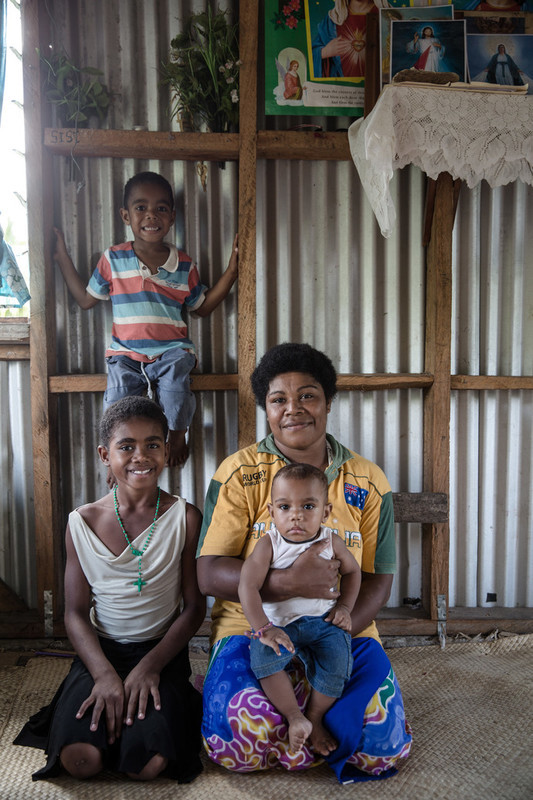
Dealing with the devastation
Cyclone Winston that devastated Fiji was the strongest to ever hit the South Pacific. IPPF’s humanitarian response there is part of our SPRINT Initiative, funded by the Australian Government’s Department of Foreign Affairs and Trade. My name is Elenoa Male and I live in the village of Navala. At the time of Cyclone Winston I was seven-months pregnant. It was already very hard trying to keep my other three children safe. I was alone with them because my husband went out hunting before the cyclone hit. Just before the time of the cyclone, my family was living between our traditional bure (thatched house) and a tin-roofed house. When the warnings first came, I decided to move my family from the bureto to the tin-roofed house. I realised that it would be hard to go to school where the evacuation centre was because I was pregnant. I told the kids we were sleeping under the bed. After we had dinner we prayed and we told God that now it is your will and we ask for your protection. So we lay down, and then my husband arrived and asked for the kids. I told him that we are all lying down under the bed. He said we really didn't know how strong the cyclone would be, but I told him to shut up and prepare for it. We all lay under the bed for hours. All I could hear was the strong winds. Once the winds died down, I came out but found our bure house was completely destroyed. I was sad because we need the bure for relaxation because of its coolness. I received a dignity kit from IPPF containing clothes for my children along with toothpaste and brushes, and this helped a lot in the weeks after Cyclone Winston. What I needed the most was for my kids to be fed properly and to wear good clothes. It really helped us a lot. Stories Read more stories about our work in Fiji after the Cyclone Winston
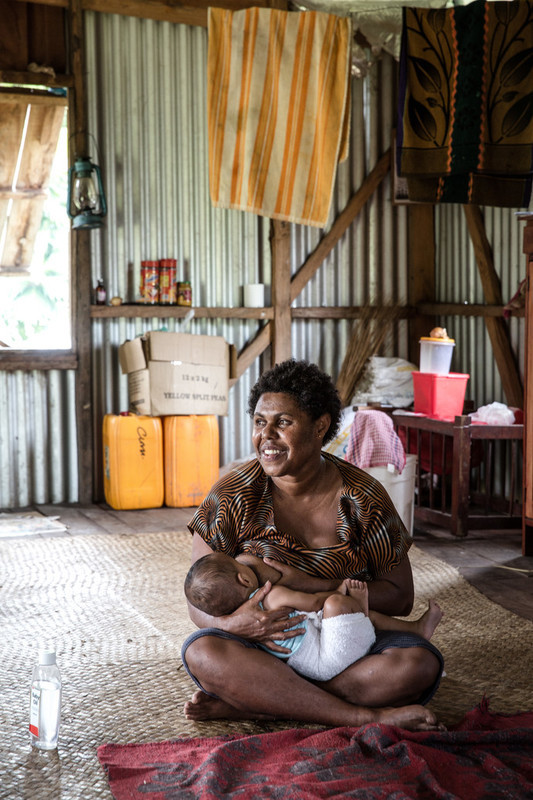
In the eye of the storm
Cyclone Winston, which devastated Fiji, was the strongest to ever hit the South Pacific. IPPF’s humanitarian response there was carried out with our Member Association, the Reproductive & Family Health Association of Fiji, and is part of our SPRINT Initiative, funded by the Australian Government. My name is Verenaisi Katerina. I have five children and we live in a remote village in the Ba Highlands. At the time the cyclone hit we were all living in a timber house and I was pregnant. I’ve lived in a bure (traditional timber house with a thatched grass roof) all my life, I’m so used to living in a bure, I’m not used to living in a tin-roofed house. We tried to be prepared when the cyclone came. But we had to all rush to the evacuation centre when the roof blew off our house. My whole family was scared, our house was flooded and our crops were all damaged. My daughter was covering her eyes and ears and crying for help. While I started preparing to move to the local school to take shelter, my husband went to get us some food. I was really, really afraid. I was so worried about my kids. I told my husband not to be late and to help me out with the kids going down to the school. In the end, I managed to get my children to the school on my own, and my husband joined us later. While my family took shelter, lots of other homes in Navala were destroyed. We were lucky: most of their possessions were blown away, but some managed to survive, and our home was damaged, but remained standing. When we came back the next day, my husband tried to start repairing the kitchen so that we could move back. We had a small stove that we were using, and we made a small kitchen so at least we could cook. My husband could only get us what was left over from the farm and that’s basically what we were living on. We had to eat a lot of flour products, a lot of rice, because our farm was badly damaged. I received a dignity kit from IPPF and found it extremely helpful, particularly in clothing my children and the baby. Some of it was worn on the very same day we received it. I later took part in a family planning session conducted by IPPF. I learned a lot from the workshop on that day. I told myself, this is it. I’m only going to have five kids. Having to go through that experience of Cyclone Winston, if I had more children, then it might have been more difficult, too late, for me to run up to that school for shelter. I have had a talk with my husband and we have decided that this one is my last. My fifth is my last. Stories Read more stories about our work in Fiji after the Cyclone Winston

Starting again in Fiji
Cyclone Winston, which devastated Fiji, was the strongest to ever hit the South Pacific. IPPF’s humanitarian response there was carried out with our Member Association, the Reproductive & Family Health Association of Fiji, and is part of our SPRINT Initiative, funded by the Australian Government. 22-year-old Sulueti arrived in the village one week after the cyclone was over. She was shocked - there was nothing left apart from the foundation of the house apart from that everything was gone. She hadn't expected it to be so bad. Her 59-year-old mother, had been sick and alone during the cyclone and she was traumatised as had never experienced a storm like that before. They tried slowly to start rebuilding a small house for them to move back into and out of the community hall. It was a difficult time because Sulueti was four-months pregnant. She managed to see a doctor three times while staying in the community hall, but there were no proper examinations or ultrasounds during this time. The delivery was fine in a maternity hospital. She received a dignity kit from IPPF and received baby supplies for post-delivery, everything that was required for a new mother to care for a baby was in the kit. IPPF went to visit her in her home and gave advice on family planning - she is taking injectables now because she doesn’t want any more children. Stories Read more stories about our work in Fiji after the Cyclone Winston
Improving the sexual health of young people after Cyclone Winston, Fiji
Even before Cyclone Winston, there was very little knowledge about contraception and sexually transmitted infections in Fiji. IPPF health professionals are now providing the affected population with counselling and advice on family planning and sexual health.







